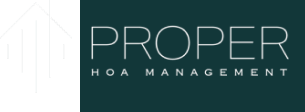As more and more people are starting to prefer living in communities, HOAs or Condominium companies and associations are rapidly forming to assist. The major focus of these HOAs is to safeguard the quality of living as well as make sure that the rules are being followed as per the community. But, managing HOAs is not simple work and not anybody can do it. You need special knowledge, experience, and at times certifications to run a successful HOA.
In this article, we will discuss the best practices for effective HOA and condominium industry management.
Develop Comprehensive Governing Documents
Well-crafted governing documents are the foundation of a well-run association. These documents typically include the declaration of covenants, conditions, and restrictions (CC&Rs), bylaws, and rules and regulations. It is essential that these documents are clear, concise, and easy to understand, as they will guide the board’s decision-making processes and help to prevent disputes among residents.
Establish Effective Board Governance
A proactive and knowledgeable board of directors is crucial for the successful management of an HOA or condominium association. The board should:
- Regularly attend training sessions and seminars to stay up-to-date on relevant laws and industry trends.
- Maintain a diverse mix of skills and experience among board members to ensure a balanced perspective in decision-making.
- Communicate openly and transparently with homeowners about board decisions and community issues.
Foster Strong Communication with Homeowners
Clear and consistent communication is essential for building trust between the board and homeowners. Associations should:
- Create and maintain a user-friendly website that provides access to essential documents, announcements, and updates.
- Distribute regular newsletters and email updates to keep homeowners informed of important events and decisions.
- Encourage homeowner participation in board meetings and other community events.
Implement Transparent Financial Management
Financial transparency is vital for maintaining homeowner confidence in the board’s management. Associations should:
- Develop and adhere to a detailed annual budget, approved by the board and shared with homeowners.
- Regularly review financial statements and provide accessible reports to homeowners.
- Establish a reserve fund for long-term maintenance and repair projects based on a professional reserve study.
Employ Professional Management Services
Many HOAs and condominium associations choose to hire professional management companies to handle day-to-day operations, ensuring compliance with governing documents and local laws. These companies typically provide a range of services, including:
- Financial management, such as collecting assessments, paying bills, and maintaining financial records.
- Maintenance of common areas and facilities, including landscaping, pool services, and exterior repairs.
- Enforcement of community rules and regulations, including addressing violations and resolving disputes.
Plan for Long-Term Maintenance and Repairs
A well-maintained community is essential for preserving property values and homeowner satisfaction. Associations should:
- Conduct regular inspections of common areas and facilities to identify and address maintenance needs.
- Develop a long-term maintenance plan, including preventative measures, to minimize unexpected costs and disruptions.
- Allocate adequate funds in the annual budget and reserve fund to cover anticipated maintenance expenses.
Promote Community Involvement and Abide by Law
A strong sense of community is vital for fostering homeowner satisfaction and increasing property values. Associations should:
- Disputes between homeowners and the board can undermine community harmony and lead to costly legal battles. Associations should:
- Develop and enforce clear, fair, and reasonable rules and regulations that are consistently applied to all homeowners.
- Address violations and disputes in a timely manner, with an emphasis on open communication and compromise.
- Consider alternative dispute resolution methods, such as mediation or arbitration, before pursuing legal action.
Stay Informed of Legal and Regulatory Changes
Laws and regulations governing HOAs and condominium associations can change frequently, and failure to comply can result in fines or legal disputes. Associations should:
- Regularly consult with legal counsel to ensure compliance with local, state, and federal laws.
- Stay informed of industry trends and best practices by participating in relevant seminars, conferences, and professional organizations.
- Update governing documents as needed to reflect changes in the law and best practices.
Conduct Regular Board Assessments and Self-Evaluations
Periodic evaluations can help the board identify areas for improvement and ensure that the association is functioning effectively. Associations should:
- Conduct annual board assessments to evaluate the performance of individual board members and the board as a whole.
- Seek feedback from homeowners regarding the board’s performance and their level of satisfaction with the community.
- Develop and implement action plans to address identified areas of weakness and improve overall management.
Bottom Line
Effective management of an HOA or condominium association requires a dedication to transparency, communication, and community involvement. By following these best practices, boards can create a harmonious living environment that protects property values, fosters a strong sense of community, and ensures the long-term success of their association.
If you’re looking for a professional HOA, Proper HOA Management Can help you with its expertise and knowledge. Contact us to know more.


